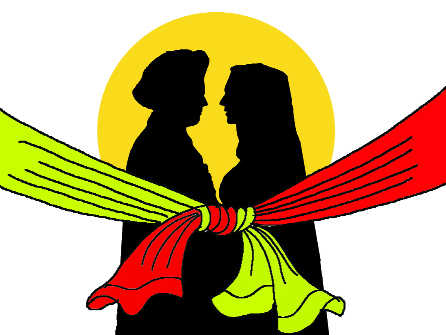Harvinder Khetal
Weddings in the family are whirlwind times, with warmth overwhelmingly winning over whatever else may be wanting to wriggle its way in. Well-wishes pour in as the most cynical of the lot, too, get sucked in the revelry. Cousins and kin and other cast of characters from across the continents converge on the family home. A commotion of constant comings-and-goings, gestures of care, cheerful chatter, and ego clashes — all combine to colour the canvas of celebrations; each one contributes a crumb to the chaotic chores connected to the charming ceremonies; creating a cache of recollections to be cherished.
My veere di wedding this week has us women wondering why despite overflowing wardrobes, there’s nothing worth wearing. But we sweat not too much. It’s been a vanity chase to the clothiers, the coiffurists, the cosmetologists. Of course, the bride and the groom have been busy fitting out their own outfits and styles. It’s one time that one wants to look the best, and one readily indulges oneself; no price is too high and one is magnanimous with money.
That takes me to the root and etymology of the word wed. Did you know that it has connotations of exchange of money? Wed comes from the Middle English wedden, from Old English weddian; akin to Middle High German wetten to pledge, Old English wedd pledge, Old High German wetti, Goth wadi, Latin vad-, vas bail, security. It is said that the Anglo-Saxon word “wed” had a double meaning: one that the man vowed to marry the woman, and second, it referred to the bride price (money or barter) to be paid by the groom to the bride's father. Even the modern German word Wette means to make a bet or a wager, and it crosses with English as to mean a pledge or vow.
Considering that weddings have in the past been more a matter of politics and business, the angle of economy in the relationship is quite understandable. Then, later, religion also came to play a role in the institution of marriage, specially in how it was solemnised.
Now, back to the present: Of course, soon after the honeymoon, things settle down to a totally mundane routine and shopping for clothes and accessories is often a prickly issue between couples since while mostly women are wedded to shopping, most men would simply rather be divorced from it. I am reminded of this story:
After we had lunch with another couple, the women went shopping, and the men opted to go sailing. Bad decision—a storm blew in while we men were out on the water.
Making matters worse, the tide had gone out, grounding the boat. We had to climb overboard and shove it back into deep water.
As my friend stood there—ankles deep in muck, muscles straining against the weight of the boat, and rain pelting
his face—he grinned broadly and with unmistakable sincerity said, “Sure beats shopping!”
And it is such little points of pinprick between the two genders that often give birth to all that husband-wife humour. I bet you have better ones, but savour this:
After a quarrel, a wife said to her husband, “You know, I was a fool when I married you.” And the husband replied, “Yes, dear, but I was in love and didn’t notice it.”
Well, my brother is all set to tie the knot. His traditional Sikh headgear, the smart attire and the sword have been duly ornamented in keeping with the tradition of the Anand Karaj ceremony that will seal the couple’s union. We hope theirs is a match made in heaven. Though marriage itself is a civil institution, the wedding ceremony is often based on religious belief and practices. For example, after Christians had begun to have their marriages conducted by ministers in Christian gatherings, the Roman Catholic Church, in the 12th century, formally defined marriage as a sacrament, sanctioned by God.
Interestingly, the Delhi Government has last month only — on February 9 — notified the Delhi Anand Marriages Rules 2018 under which marriages of Sikhs would be registered in the Capital. Till then, though Sikhs got married through ‘Anand Karaj’, their marriage was validated using the Hindu Marriage Act. Members of the community had been facing problems when they travelled abroad since while they state their religion as “Sikh”, their marriage showed registration under the Hindu Marriage Act. Their 110-year-old demand has been fulfilled with this notification.
And, coincidentally, the Sikhs of Pakistan’s Punjab too were granted this decades-old wish a few days ago —on March 15. The Pakistan Punjab Assembly passed the Punjab Sikhs Anand Karaj Marriages Act 2017, a bill that will provide legal status to Sikh marriages in the province. It effectively repeals the Anand Marriage Act, 1909 that was passed under the British rule. With the approval of the bill, every Sikh marriage that took place before the bill came into force would also gain legal status.
Well, this progressive step in matters of getting hitched calls for some puns minted from the Internet era:
Did you hear about the two spiders who just got engaged? I hear they met on the web.
Did you hear about the two cell phones who got married? The reception was terrific.
hkhetal@gmail.com
Unlock Exclusive Insights with The Tribune Premium
Take your experience further with Premium access.
Thought-provoking Opinions, Expert Analysis, In-depth Insights and other Member Only Benefits
Already a Member? Sign In Now










